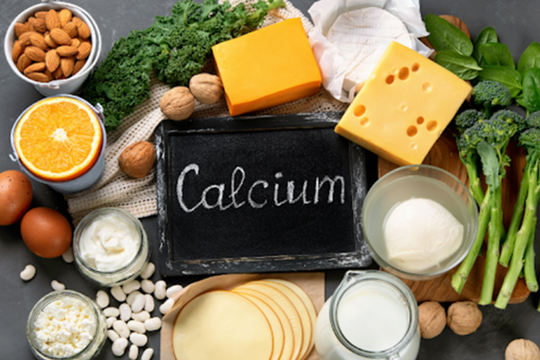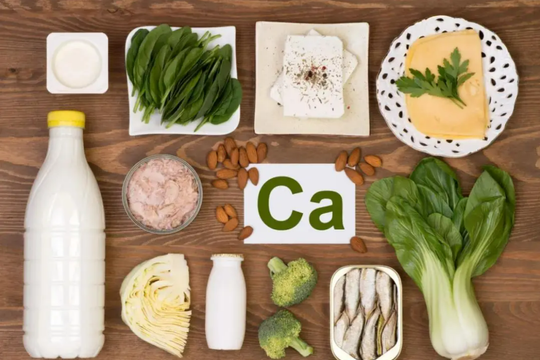Things to note when supplementing calcium for the body
Calcium supplementation depends on the needs of each age. When combined with necessary vitamins, the body will absorb this nutrient better.
Calcium is a mineral that is essential for the formation and maintenance of bones and teeth in the body. However, calcium in the human body is not permanently stable, but is lost daily with age or important cycles of life. Below are some notes when supplementing this mineral for the body.
Distinguishing calciumThere are many forms of calcium on the market today, but they can be divided into two types: inorganic and organic calcium.
Inorganic calcium is made up of calcium ions with inorganic compounds, which can be created by chemical reactions during the manufacturing process, or taken from natural organisms such as seashells, clam shells... Inorganic calcium is often found in the form of calcium salt compounds such as calcium citrate, calcium carbonate (limestone).
|
| Inorganic calcium is found in oyster shells, clam shells... |
Organic calcium is made up of calcium ions with organic compounds such as calcium gluconate (full name is calcium lactate gluconate), calcium caseinate... Simply put, organic calcium contains calcium that is similar to the form of this mineral in natural foods.
In terms of taste, organic calcium has a natural, more delicious taste or is odorless, while inorganic calcium often has a fishy, unpleasant taste and is difficult to drink.
The calcium content in these products is not the same, leading to different absorption capabilities by the body.
|
| Calcium is also found in many nuts. |
With inorganic calcium products, the amount of calcium absorbed is limited, the excess free calcium in the blood that is not fully absorbed will be deposited in the kidneys causing kidney stones, constipation or calcification of blood vessel walls.
For pregnant women, excess calcium can be deposited in the placenta, causing placental calcification, reducing the ability to exchange substances between mother and fetus. This causes the fetus to develop slowly or the baby to be malnourished in the womb.
On the contrary, many studies in the world have shown that organic calcium from natural sources from foods, animals and plants will be safer for the body, avoiding the phenomenon of calcium deposition. Therefore, most doctors and medical experts recommend using organic calcium from natural sources.
Supplement vitamins and calciumTo help the body fully absorb calcium, you need to combine it with other vitamins and nutrients such as: D3, zinc, magnesium...
Vitamin D3 is considered the “guide” for calcium. Vitamin D3 increases calcium absorption, promoting the incorporation of calcium into bones.
Magnesium is essential for the metabolic activities of bones, muscles and nerve tissue. This mineral also helps the body stay healthy, fight fatigue and prevent calcium deposits in the kidneys.
|
| Magnesium is abundant in bananas. |
In addition, zinc is one of the important minerals that help keep bones healthy. Zinc stimulates collagen synthesis, bone formation, reduces bone degeneration and slows down the production of osteoclasts.
From this we can derive the optimal formula for calcium products which are organic calcium of natural origin and combined with additional vitamins.




.jpeg)

.png)




